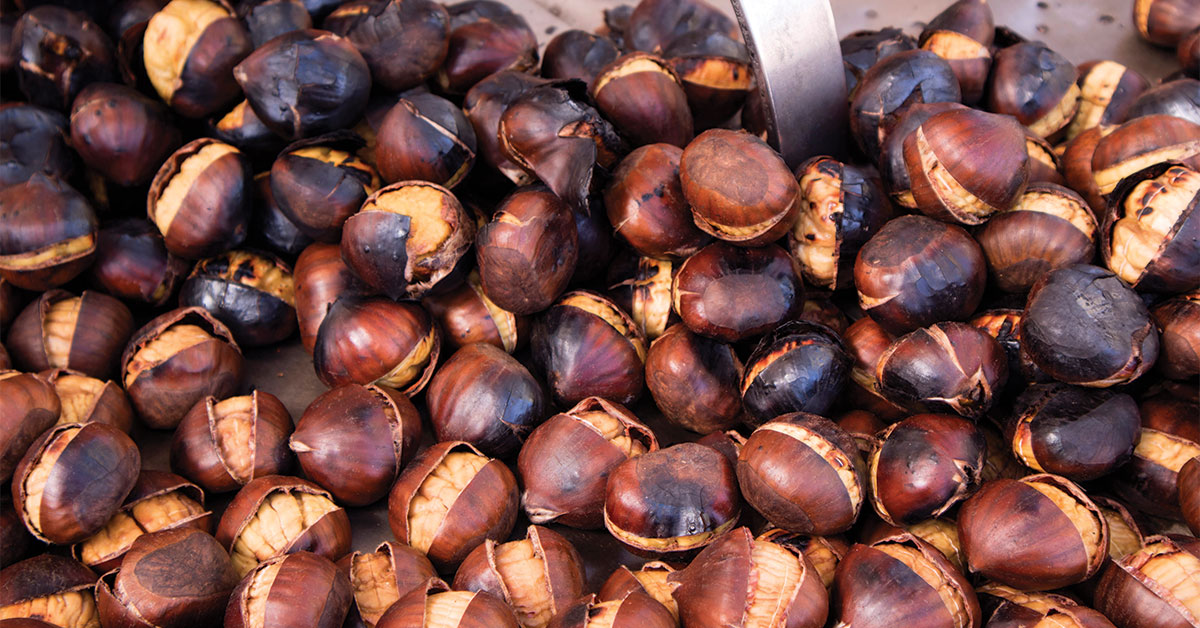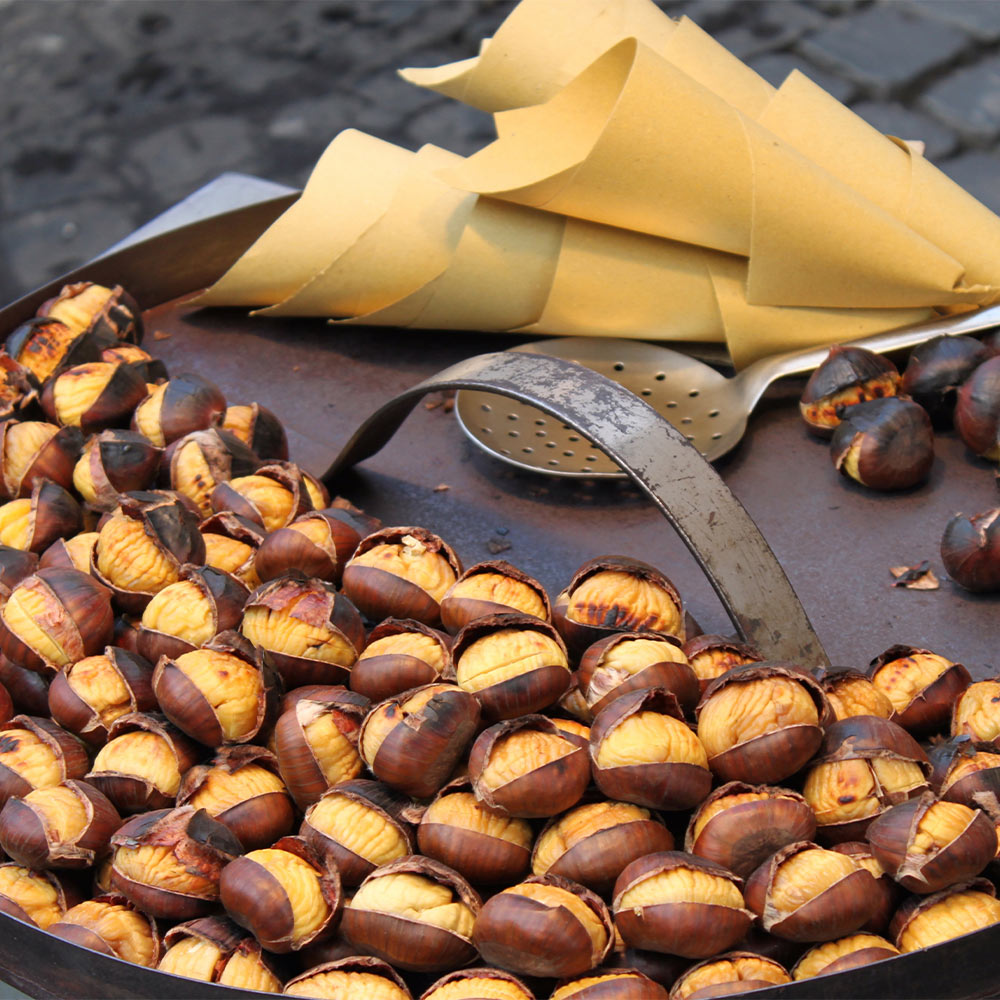WHAT HAPPENS TO OUR BODY WHEN WE CONSUME PROTEIN
The health benefits of it!

Whether roasted or mixed in stuffing, chestnuts are a beloved fruit and rightfully can be called the "Gold" of Winter. Their health benefits are many.
The History of the Chestnut Tree:
Chestnuts belong to the same family as the beech tree. They grow in spiky green shells that reveal the fruit when peeled.
They are typically found in the United Kingdom from October to December. Unlike other nuts, chestnuts have a low oil content and a high water content, which gives them their unique, soft texture.
Starchy, sweet, and rich in flavor, chestnuts are popular nuts from the Northern Hemisphere. These nuts come from the mountainous forests of China, Japan, Europe, and North America.
Botanically, they belong to the beech family (Fagaceae) and the genus Castanea. Scientific name: Castanea sativa.
There are four main species of chestnut grown worldwide for their fruits: Castanea sativa in Europe, C. dentata in North America, C. mollissima in China, and C. crenata in Japan.
The United States is the main importer of chestnuts to the European Union, although China has been the largest exporter of nuts worldwide, especially to Japan.
Unlike other nuts and seeds, chestnuts are relatively low in calories and fat. However, they are rich sources of minerals, vitamins, and phytochemicals that greatly benefit health.
Another unique feature of chestnuts is that they are mainly composed of starch, unlike other types of seeds and nuts that are relatively high in calories, protein, and fat.
The nutritional composition of chestnuts is, therefore, comparable to other staple starchy foods such as sweet potatoes, sweet corn, and potatoes. However, they still provide good sources of minerals, vitamins, and some high-quality proteins.
Nutritional Benefits of Chestnuts
|
A 100g serving of raw chestnuts provides: |
| 170 kcal / 719 kJ |
| 2.0g protein |
| 2.7g fat |
| 36.6g carbohydrates |
| 7.0g sugars |
| 500mg potassium |
| 5.5g dietary fiber |
The 5 top health benefits of chestnuts are:


Good Source of Antioxidants
Chestnuts contain a range of antioxidants, including vitamin C and carotenoids like lutein and zeaxanthin, as well as various plant compounds like polyphenols and tannins. These nutrients and plant compounds help protect cells from damage and may assist in protecting against chronic diseases.
May Support Heart Health
Being a source of polyphenols like gallic and ellagic acid, chestnuts may help protect the heart from oxidative stress. Chestnuts are also a good source of potassium, which is important for regulating blood pressure.
High in Dietary Fiber
Chestnuts are an excellent source of dietary fiber, which supports the function of the digestive system. The fiber also acts as a prebiotic, feeding gut bacteria and, in turn, contributing to maintaining a healthy gut environment.
May Improve Blood Sugar Management
While chestnuts provide more carbohydrates than other nuts, the added fiber they contain helps regulate blood sugar. The antioxidants in chestnuts, such as gallic and ellagic acid, appear to improve our cells' response to insulin, making overall blood sugar control more effective.
May Help with Weight Management
High in fiber, chestnuts can help reduce appetite compared to other nuts. They are also lower in fat and calories. Furthermore, promising animal studies suggest that adding chestnuts to the diet may reduce belly fat accumulation.
Are Chestnuts Safe for Everyone?
Chestnuts belong to a different botanical category than the eight nuts that are common allergy risks. Therefore, some people may be allergic to chestnuts.
Raw chestnuts are safe for consumption by most people, but because they contain tannins, they may cause digestive disturbances and nausea in some individuals.